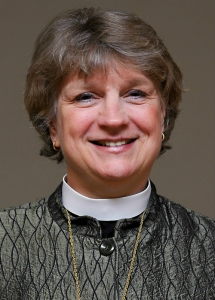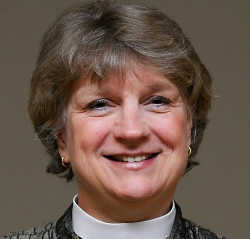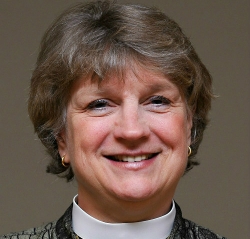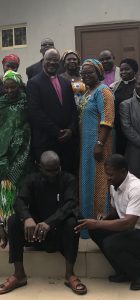Together Everyone Achieves More (Get it? T – E – A – M)
June 11th, 2018 By Bishop Ann Svennungsen
By Bishop Ann Svennungsen
After I was called as senior pastor at Trinity in Moorhead, Minnesota, I received an invitation from the ELCA to attend the “New Heads of Staff” Conference, led by Peter Steinke. For me, the learning curve of senior pastor was significant. Hoping for encouragement at the conference, I found Steinke’s long list of all the skills and characteristics required of leaders to be rather ominous. Finally, at the end of his two extensive lectures, I asked: “In your opinion, what is the single most important characteristic of a good leader?” Though I could tell he wasn’t eager to be pinned down, he finally said, “self-awareness.”
His words have stayed with me for 22 years. Self-awareness. It’s actually pretty amazing to see the growing number of tools available to help us in this regard: Myers-Briggs, Strengthsfinder, Enneagram, spiritual direction – to name a few.
“As a team leader, I’ve also come to respect Patrick Lencioni’s work on what I call ‘team-awareness.’”
As a team leader, I’ve also come to respect Patrick Lencioni’s work on what I call “team-awareness.” His early book, The Five Dysfunctions of a Team, provides key questions to assess the health of a team: Do we trust each other? Are we focused on results? Is there openness to conflict? Is everyone committed to shared outcomes? Do we hold each other accountable?
BUILDING A HEALTHY TEAM is one of the most important tasks of any leader. When I attended First Call Theological Education way back in 1984, I was amazed by the number of recent seminary graduates experiencing tension with their senior pastors. As a colleague in another field put it, “You join an organization for the mission; you leave it because of the management.”
Our synod staff’s commitment to help church leaders thrive includes a commitment to help staffs and teams thrive as well. An exciting opportunity to strengthen pastoral teams is a Luther Seminary Kairos offering with Susan Beaumont August 28-29. Because the synod believes so strongly in this opportunity, the synod will pay $50 toward the registration fee and will provide for follow up conversations as well. Just go to the link above and use coupon code “MPLS50” (and then click “apply”) to register. (After registering, please email Pastor John Hulden, j.hulden@mpls-synod.org, to inform him of your registration.)
“You join an organization for the mission; you leave it because of the management.”
What are some tools and experiences that have helped you to thrive as a leader? To thrive as a team? I’d love to hear about them – for the journey of growth and health, of self-awareness and team-awareness lasts a lifetime.




